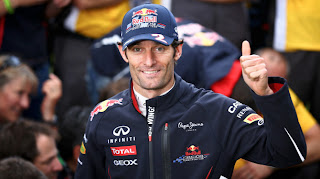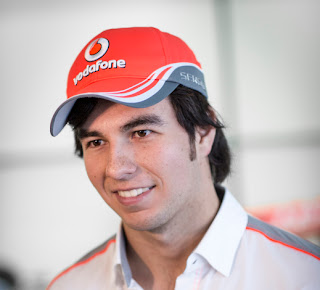THE JEWEL IN THE CROWN
By rights, this circuit should have been abandoned long ago, for it fails to meet several demands made of all other circuits by the sport's governing body. Critics feel that racing is impossible and that the drivers are wasting their time taking unnecessary risks. But Monaco is the most glamorous venue in the world for a Grand Prix, and so it's beloved by drivers, celebrities and sponsors alike, which is why it continues, and the small principality has hosted some crazy, but thoroughly memorable races.
1961
 |
| Stirling Moss (#20) made mincemeat of the more powerful Ferrari's at Monaco in 1961. |
This was the race where Stirling Moss proved just what a great driver he really was. The underdog in the privateer Lotus, fighting off the pressure to beat the all-conquering works Ferrari's, and the public loved him for it.
1970
 |
| Jochen Rindt took victory at the 1970 Monaco Grand Prix after leading just one lap, the last. |
After qualifying in a disappointing eighth place, Jochen Rindt was a man on a mission come race day in Monco. With 18 laps to go, the Austrian found himself 2nd, behind the ex World Champion, Jack Brabham. Rindt upped his pace and began to eat in to Brabham's lead, by the final lap he was right on the Australian's tail, but surely the veteran would be able to resist the pressure. But no, in the very last corner of the race, Brabham slid off into the straw bales and Rindt went on to take an astounding victory. Brabham reversed back on to the track to disconsolately claim second position.
1972
 |
| Jean Pierre Beltoise took the only win of his career at a cold, soggy Monaco Grand Prix. |
1980
 |
| Derek Daly finds an alternative way to overtake in Monaco in 1980. |
Even in Monaco, the race for the great prize can carry a big price. The Tyrrell of Derek Daly started from 12th on the grid, but the over-enthusiastic Irishman was too late on his brakes going into the St. Devote corner, striking the Alfa Romeo of Bruno Giacomelli and launching into the air, flying over Alain Prost's McLaren before landing on top of his team mate, Jean-Pierre Jarier. All four drivers were out on the spot, but all of them escaped unhurt. The Williams of Carlos Reutemann went on to win the race.
1982
 |
| Riccardo Patrese took his first career victory, just, in Monaco in 1982. |
This race has been featured on my blog before, but you can look at it again and again, it will still leave you in a state of belief. The Monaco Grand Prix may be billed as the race that all drivers want to win the most, but that didn't seem to be the case in 1982. René Arnoux's Renault led away from the start and looked comfortable until after 14 laps, he spun out of the race, handing the lead to his team mate, Alain Prost. With three laps of the race to run, it began to rain and Prost crashed into the barriers coming out of the chicane. That left Riccardo Patrese in the lead, but he spun at the Lowes hairpin and stalled, promoting the Ferrari of Didier Pironi to first position. The Frenchman started his last lap, very slowly, the reason being he was running out of fuel. He was unable to make it home and the Ferrari ground to a halt in the tunnel. The lead should have gone to Andrea de Cesaris in the Alfa Romeo, but incredibly he also ran out of fuel. Derek Daly's Williams also could have taken the lead, until his gearbox seized up after the Irishman had clouted the barrier. Unbelievably, Riccardo Patrese found himself back in the lead after bump starting his Brabham on the downhill gradient after the hairpin. Everyone could breathe a sigh of relief that someone had finally seen the chequered flag!
1984
 |
| The Senna legend started most appropriately at Monaco in 1984. |
The 1984 Monaco Grand Prix has gone down in history as the race which saw the arrival of Ayrton Senna. In an underpowered Toleman, in torrential rain, Senna stormed through the field up to second position and was closing inexorably on the McLaren of Alain Prost, had the race not been stopped, the Brazilian could very easily have taken his first career victory. However, he also could not have done, Nigel Mansell may have won his first Grand Prix, but he spun his car on a very slippery painted white line, hit the barrier and retired. Stefan Bellof could also have won the race, he was running third and catching both Prost and Senna at the time of the red flag. But it was Prost who did take victory after the race was stopped for good after 31 laps, this was before 75% race distance had been completed and therefore half points were awarded.
1988
 |
| The unthinkable, Ayrton Senna crashes out of the Monaco Grand Prix after dominating the entire weekend. |
In 1988, the dominance of the McLaren Honda was clear for all to see. And Ayrton Senna was in a class of his own from the start of the first practice session. In qualifying he beat his team mate, Alain Prost, by a scarcely believable, 1.4 seconds. And he was 2.5 seconds ahead of third place Gerhard Berger in the Ferrari. In the race, Prost got a bad start and was overtaken by Berger, that allowed Senna to pull away in the lead, continuing his incredible pace. By the time Prost finally made it past Berger, Senna was 50 seconds ahead. In the closing stages, Senna had been told by the team that he did not need to push so hard any longer. He lost concentration and crashed into the barrier. He was so distressed that he headed for his apartment and hid himself there until hours after the end of the race. This left Prost taking his fourth victory in Monaco.
1992
 |
| Ayrton Senna holds Nigel Mansell off to win the 1992 Monaco Grand Prix. |
Just as Ayrton Senna had been so dominant, but failed to win in 1988, exactly the same fate struck Nigel Mansell four years later. Mansell had been untouchable in the first five races of 1992, and arrived in Monaco looking for a sixth consecutive victory and a first in the principality. Everything looked good, until 8 laps from the end, when the Englishman suspected a puncture and made a pit stop. By the time he rejoined the race he had lost the lead to Ayrton Senna, but on fresh rubber he closed fast on the Brazilian. For the final 3 laps, it was a classic duel to the finish line, but Mansell could not find a way past, and Senna took his fifth Monaco Grand Prix win.
1996
 |
| Olivier Panis took his solitary victory in Monaco in 1996, the last win for Ligier. |
One of the most bizarre races in Formula One history, the 1996 Monaco Grand Prix had drama all the way from red lights going out, until the chequered flag was waved. Michael Schumacher in the Ferrari had taken a brilliant pole position, but on a damp track at the start he was passed by Damon Hill. Then incredibly the World Champion crashed out on the very first lap, a very rare sight. But he wasn't the only casualty, no fewer than five drivers failed to complete lap 1. Eddie Irvine in fourth place headed a nine-car queue, and by lap 10, a further four cars dropped out, leaving just 12 runners remaining. Heinz-Harald Frentzen decided he had been behind Irvine for long enough and tried to get a run on the Ulsterman but he hit the back of the Ferrari and had to pit for a new front wing, dropping to last. Irvine continued but his luck ran out as he was pushed out of the way at Lowes hairpin by a hard charging Olivier Panis, the Frenchman having timed the change to dry tyres to perfection.
At the front it was looking good for Damon Hill to take his first win in Monaco, but sadly for him it was not to be, his engine failed coming out of the tunnel. Jean Alesi then took the lead, but a suspension problem on his Benetton robbed him of victory. Remarkably, Olivier Panis who had started in 14th place, was leading, but closing on him was David Coulthard in the McLaren, interestingly, the Scotsman had borrowed Michael Schumacher's spare helmet in this race. Behind the leaders, there was more drama, Jacques Villeneuve's race came to an end when he collided with Luca Badoer's slow Forti, and then Eddie Irvine's dramatic race finally came to an end when he spun at the same place as Schumacher had on lap 1, after performing a donut, he was hit by Mika Salo's Tyrrell and the second McLaren of Mika Hakkinen, leaving just 4 cars running. Olivier Panis crossed the line to win ahead of Coulthard and Johnny Herbert in the Sauber. Only 3 cars crossed the line as Heinz-Harald Frentzen chose to come into the pits as he was running last anyway, he was classified 4th, while Salo and Hakkinen were credited with 5th and 6th.
2004
 |
| Michael Schumacher infamously collided with Juan Pablo Montoya in the tunnel in 2004. Even stranger, whilst the safety car was out! |
Up until the Monaco Grand Prix in 2004, the season had been all about Michael Schumacher and Ferrari. The German had won the first five races, and indeed he would go on to take another championship, after a record 13 victories. But one race he didn't manage to win was Monaco, and what a farce that was!
For a change, neither of the Ferrari's started on the front row. It was the Renault of Jarno Trulli on pole position for the first time in his career, with team mate Fernando Alonso behind. At the start, both Renault's maintained their position but Takuma Sato in the BAR set off like lightning as he climbed from 8th to 4th, but all was not well, smoke was coming from the car. Indeed on lap 3, his engine expired spectacularly creating a giant smoke screen, Giancarlo Fisichella in the Sauber launched off the back of David Coulthard's McLaren and flipped over.
Jarno Trulli was flying at the front, but Alonso lost everything when he crashed in the tunnel whilst trying to lap Ralf Schumacher's Williams. The Spaniard clearly furious as second place was gone. The safety car came out and both Trulli and Button made their final stops, giving the lead to Michael Schumacher. But suddenly, the TV camera showed Schumacher coming out of the tunnel in a badly damaged car! He was warming up his tyres and braked, catching out Juan Pablo Montoya who pushed him into the wall, an astonishing collision causing the German his first retirement of the season. The final laps witnessed a close fight between Trulli and Button, both looking for their ever Grand Prix win. It was the Italian who came out on top, taking the only win of his career and thoroughly deserved after a flawless drive.









































